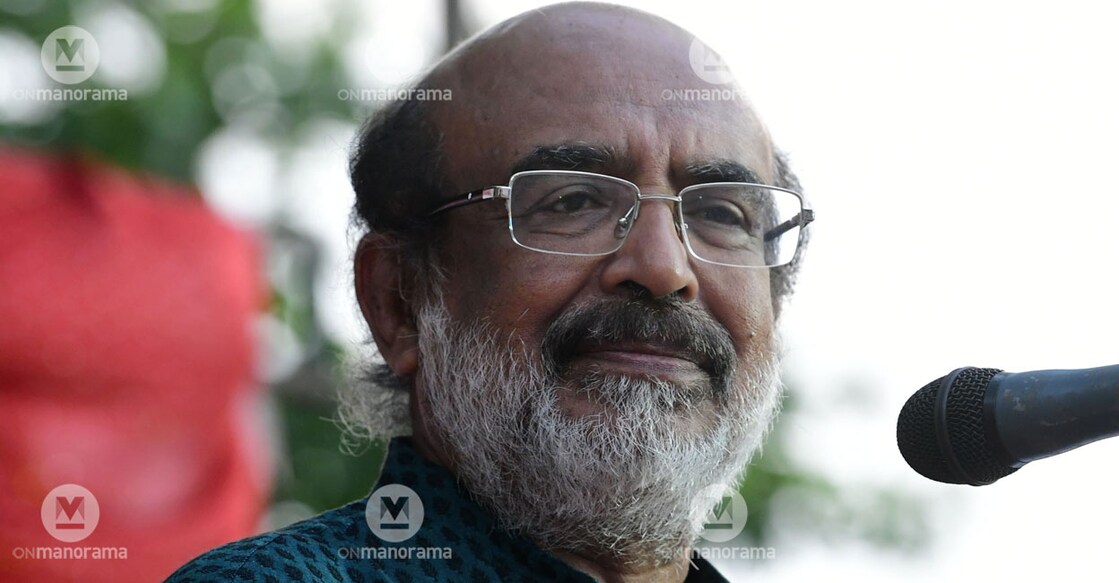Masala bonds: HC restrains ED from troubling Isaac, KIIFB officials for two months

Mail This Article
Kochi: The Enforcement Directorate has been asked to stay away from the former finance minister and CPM central committee member T M Thomas Isaac and the officials of Kerala Infrastructure Investment Fund Board (KIIFB) for at least two months in the 'masala bond' issue. The directive was issued by the Kerala High Court on Monday.
Justice V G Arun passed the order on the basis of two petitions, one by Isaac and the other by KIIFB, challenging the ED summons. Nonetheless, the High Court had not prohibited the ED from issuing summons at a later date.
The Court was only against the frequency of the summons. "Although the enquiry by the ED is not liable to be interdicted, there is no justification for petitioners to be repeatedly summoned by the officers of the ED," the Court said.
In August, too, the High Court had given temporary relief from the ED summons. Both Isaac and the KIIFB have been constantly complaining about the repeated summons they are getting from the ED. The former finance minister had one more complaint. He felt that the ED was infringing upon his privacy by seeking personal details, not just his but even that of his close relatives. Last August, too, the same bench had asked why the ED was after Isaac's personal details.
Isaac had also been arguing that the ED had not specified the nature of his crimes. "ED served me the second summons under FEMA (Foreign Exchange Management Act) for personal appearance. The roving enquiry going on against KIIFB for the last two years is against the spirit of orders of the SC. I have asked them to recall the summons or clarify the offence," Isaac tweeted last August.
Lawyers appearing for KIIFB argued that the constant ED spotlight on the Board was hurting its capability to source funds from the market for various development projects.
In its counter, however, the ED argued that the investigation was only in its preliminary stage and it was only trying to elicit information. It also said that it was legitimate to issue summons under FEMA. The ED said the floating of 'masala bond' by a state entity was an outrageous FEMA violation.
The ED said there was a reason why Isaac's personal wealth was put under the scanner. It said that it was probing whether the money sourced through 'masala bonds' was diverted for other purposes like real estate, an insinuation that Isaac had used the money to fatten himself and his family.
The case is related to KIIFB's sale of 'masala bonds' on the London Stock Exchange in May 2019 to mobilise Rs 2,150 crore. Isaac was then Kerala's finance minister. It was the first time that a state entity was using the innovative debt instrument 'masala bond', so called because it is rupee-denominated, to source funds from outside.
The advantage of 'masala bonds' is that the repayment is done in Indian currency, insulating it from exchange rate fluctuations.
Kerala government had argued that the KIIFB had floated 'masala bonds' after securing the go-ahead from the RBI. However, the first stamp of disapproval came from the Comptroller and Auditor General.
The report, tabled in the Assembly in January 2021, said 'masala bonds' were "by their very nature, external commercial borrowings". Further, it said that the Constitution bestowed the power to raise foreign loans only on the central government.
The CAG was also critical of the RBI for granting KIIFB the approval to float 'masala bonds'. It termed the apex bank's move "questionable", arguing that the external liabilities of the country would increase substantially if this model of sourcing foreign funds were to be adopted by other states.

